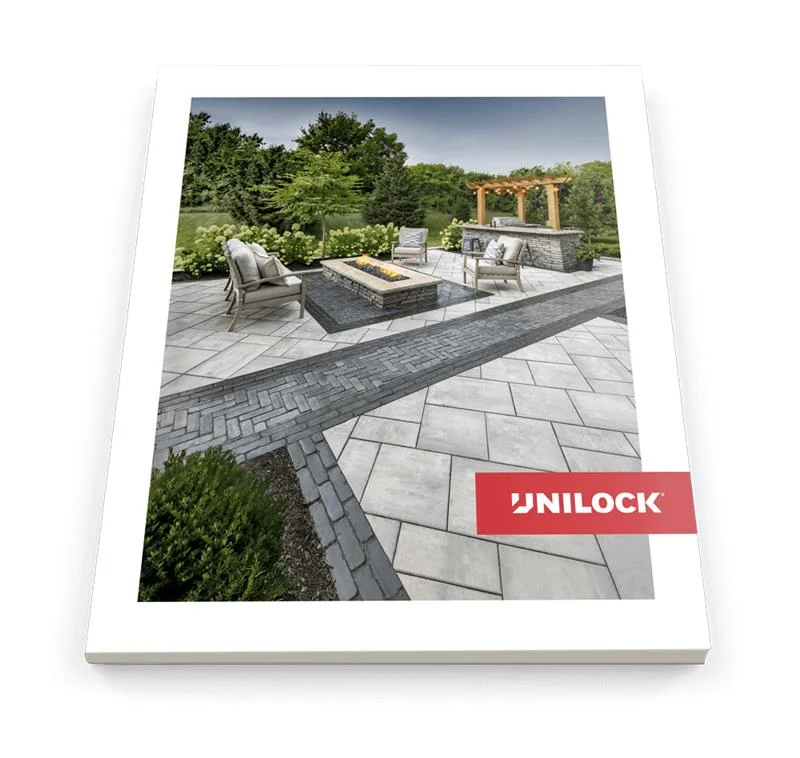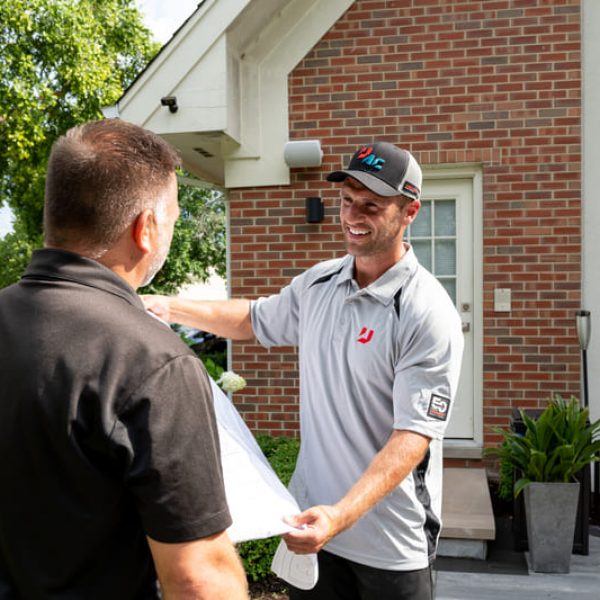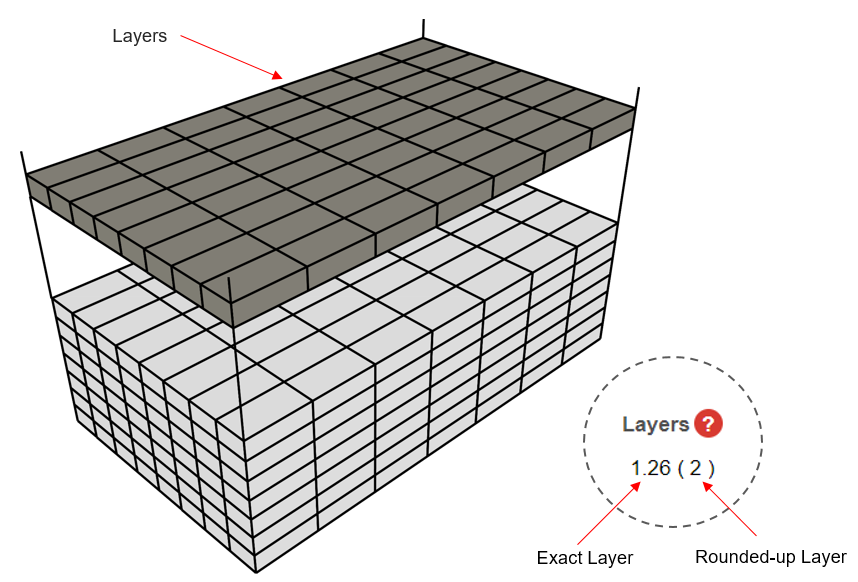Working with a Unilock Authorized Contractor is working with the best of the best. Our UACs possess the knowledge and expertise to bring your dream project to life, and deliver stunning results that will exceed your expectations.
Permeable Pavers vs Traditional Pavers: Debating the Pros and Cons of Hardscape Alternatives
When it comes to your landscape, hardscaping plays a vital role in creating functional outdoor spaces. Whether it’s a patio, driveway, or walkway, choosing the right hardscape materials is crucial. In recent years, there has been a growing debate between permeable pavers vs traditional pavers in terms of which style is the more effective hardscape solution. We will delve into this discussion by exploring the pros and cons of permeable pavers vs traditional pavers, to help you in making an informed decision for your next outdoor project.
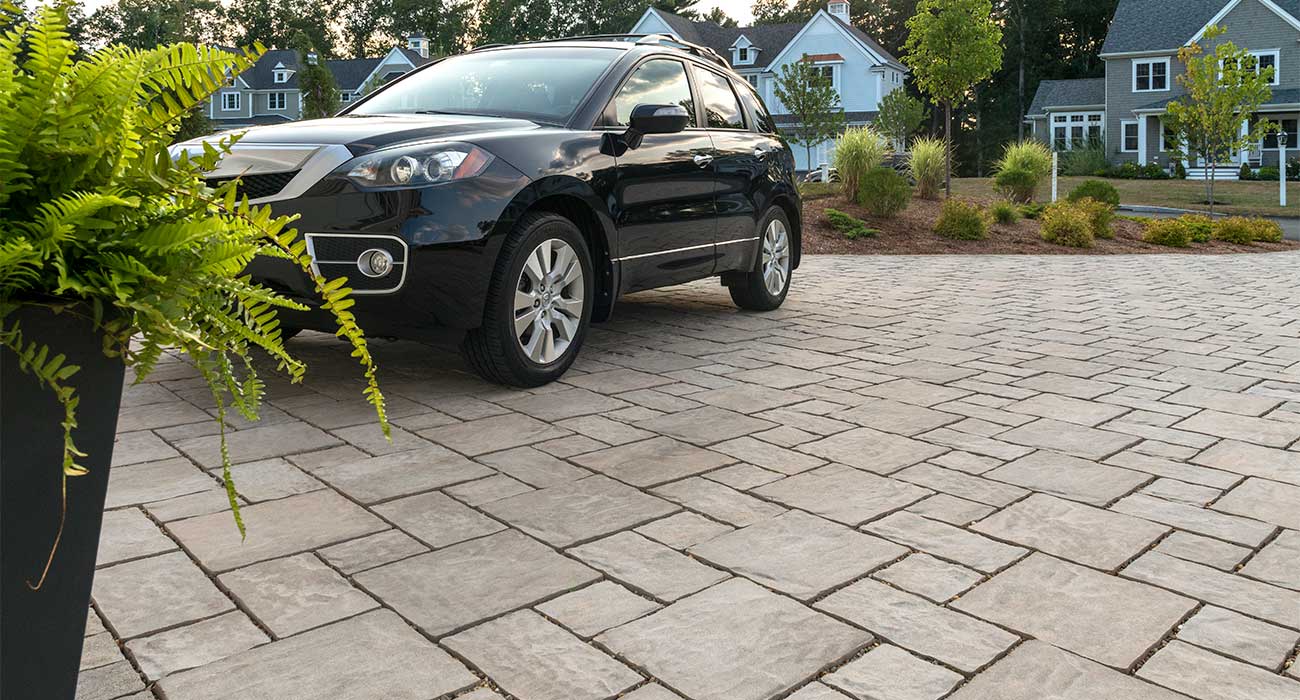
Pros and Cons of Permeable Pavers in Hardscaping
Using permeable pavers in your hardscape is a concept that focuses on the idea of facilitating rainwater flow through paver joints into the subsoil below the paver base, using materials such as permeable pavers, gravel, and porous concrete.
Pros:
Mitigate flooding: Permeable pavers are designed to facilitate the flow of excess rainwater into the ground, helping to reduce the risk of flooding.
Alleviation of strain on sewer system capacity: By allowing rainwater to infiltrate the ground, permeable pavers help alleviate the burden on municipal sewer systems.
Prevention of pollutant contamination: Permeable pavers minimize the potential for rainwater to carry pollutants into storm drains, thus preventing contamination of local rivers and streams.
Cons:
Higher upfront cost: Implementing permeable pavers can involve a higher upfront cost due to the specialized materials required to make them.
Regular maintenance: Permeable pavers require regular joint maintenance to prevent clogging and ensure optimal performance.
Fewer design options: Although there are several permeable paver options, there may be paver styles which do not align with everyone’s aesthetic preferences or specific project requirements.
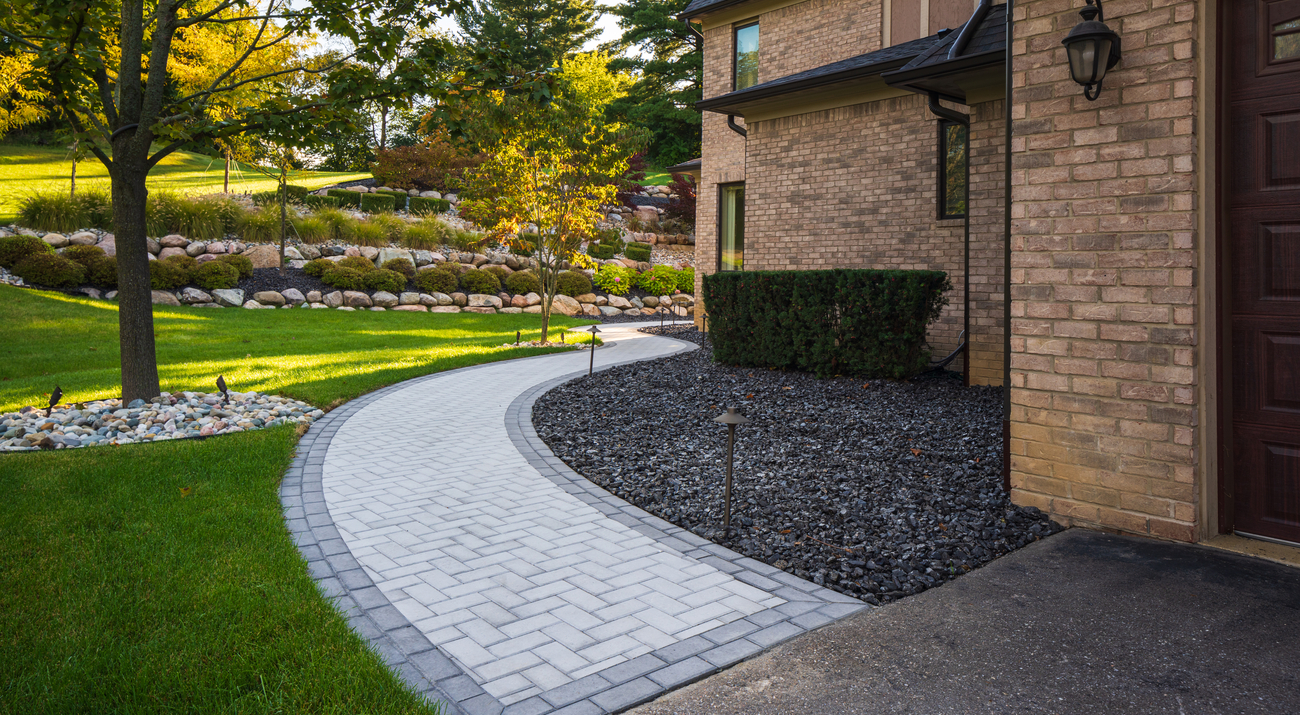
Pros and Cons of Traditional Pavers in Hardscaping
Using traditional concrete pavers in your hardscaping, on the other hand, follows a more conventional design approach, using materials like concrete, asphalt or brick.
Pros:
Affordability: Traditional pavers are slightly more cost-effective compared to permeable hardscaping options, making it a more budget-friendly option.
Versatility: Traditional hardscaping materials offer a versatile range of design options that can suit various aesthetic preferences.
Cons:
Stormwater runoff issues: Using traditional pavers in hardscaping can contribute to increased stormwater runoff, potentially causing drainage problems and put strains on the capacity of local sewer systems.
Negative environmental impact: The use of non-permeable pavers in (traditional) hardscaping is generally not a problem. However, if your particular property is already very impervious, using these non-permeable pavers may reduce groundwater recharge and potentially contribute to water pollution.
Maintenance requirements: Traditional hardscaping may require regular maintenance to remove dirt and debris.
Durability: Long-term durability should be carefully considered, as some materials, such as poured-in-place concrete, stamped concrete or asphalt, may be prone to frost or traffic damage over time.
Choosing the Right Option
The debate between permeable pavers vs traditional pavers highlights the need to prioritize environmental sustainability and long-term benefits. While permeable pavers offer notable advantages in stormwater management and the recharging of groundwater, traditional pavers have their merits in terms of affordability and design options.
We highly encourage you to consider working with a professional paver contractor, such as a Unilock Authorized Contractor, who can provide valuable expertise and guidance throughout your decision-making process. Their knowledge and experience will help you thoroughly understand and thoughtfully evaluate the pros and cons of each option. With their assistance, you can make an informed decision that strikes the perfect balance between aesthetics, functionality, and environmental responsibility.
Related
Articles

We’re Here
To Help
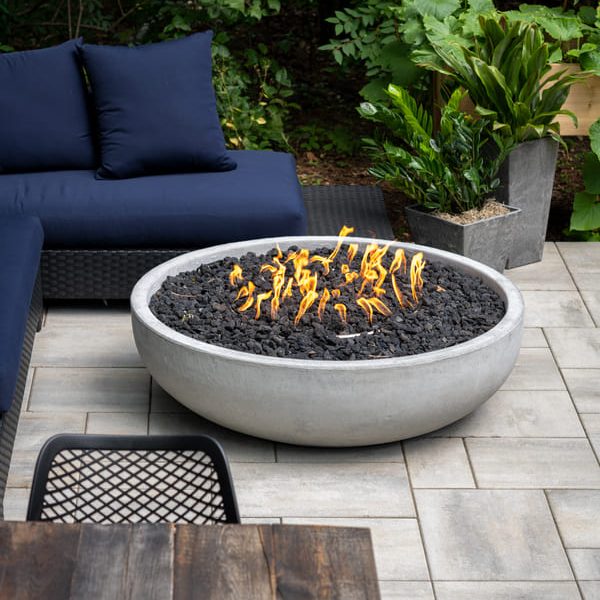
Browse our Design Idea Catalog
Explore endless design possibilities through our Design Idea Catalog. Browse our extensive portfolio of paver and wall products, and get inspired by our outstanding design projects that will fuel your creative expression.

Visit an Outdoor Idea Center
Experience the beauty and quality of Unilock paver and wall products in a life-sized setting by visiting a local Outdoor Idea Center. Our knowledgeable and friendly staff are on hand to answer any questions and offer free product samples.
